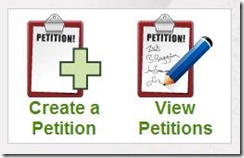The dark side of Gov 2.0
I am rather enjoying Andrea DiMaio’s latest post – It is time to explore the dark side of Government 2.0. As I have noted a few times here, here and here not everything is always rosy in the Gov 2.0 garden. One of the issues that I see is the speed at which governments are feeling that they need to adopt Gov 2.0, and they are not going into it with their eyes open.
One of my current concerns is the weight being given by governments to online polls and the influence that social media seems to have on them. The first and foremost concern is around the digital divide; there is a significant percentage of the population without internet access – but even then there is a significant percentage that are unlikely to engage with the government online. My mother and father have a PC and (finally after a lot of nagging) have broadband; however they will not be going near Facebook, Twitter or any other Social Media and nor are they likely to engage in any online petitions. Is their voice less valid?
 What I fear is that we move into a world where whoever shouts loudest online can influence the direction of government. Petitions whether online or offline are not a replacement for democracy they just indicate what one group of people think about a subject. As I commented in this post, just because 2 million people clicked a link saying that they did not want road tolls – there was no debate, no understanding of the pro’s and con’s and no-one asked the other 50 odd million people in this country what they felt.
What I fear is that we move into a world where whoever shouts loudest online can influence the direction of government. Petitions whether online or offline are not a replacement for democracy they just indicate what one group of people think about a subject. As I commented in this post, just because 2 million people clicked a link saying that they did not want road tolls – there was no debate, no understanding of the pro’s and con’s and no-one asked the other 50 odd million people in this country what they felt.
What is great about online engagement is that it lowers the barrier of entry to engagement. As a citizen, I do not have to attend town hall meetings if the information and engagement is also done online. However because the barrier to entry is lower, it is also more susceptible to spamming (for want of another word). For example, my brother sent me a link to a poll on the 10 Downing Street web site. Did I agree with its sentiments – kind of. Did I click the link – of course, my brother asked me to.
Don't get me wrong, I do believe that online engagement is important, and will become ever more important – but it should not be given more weight than it deserves, especially given its limitations in representing a cross section of the population and also the ease with which media and pressure groups can gain online support.